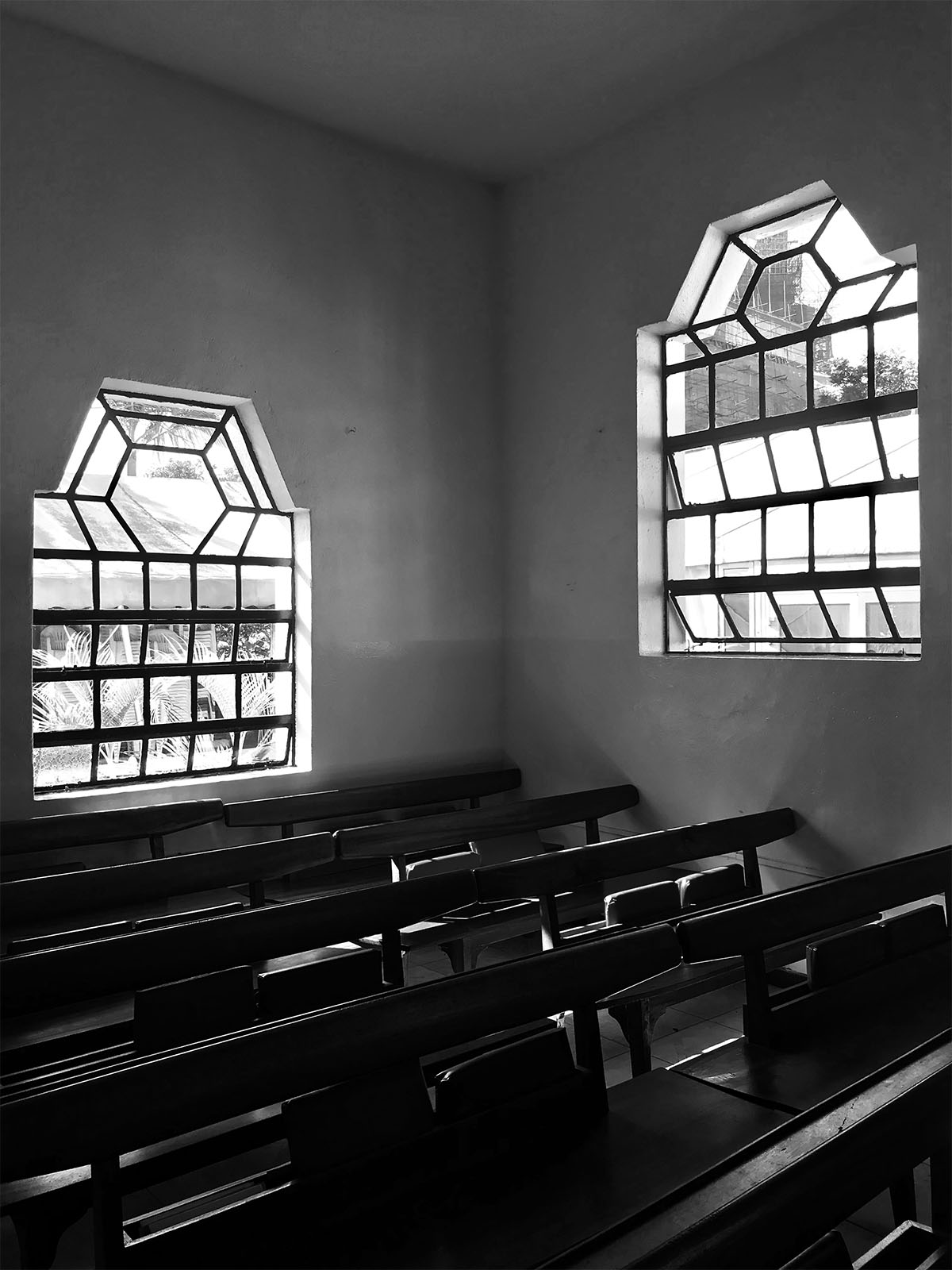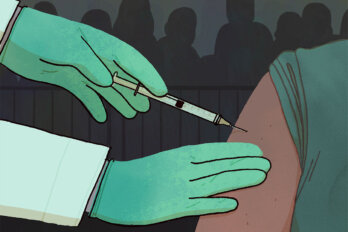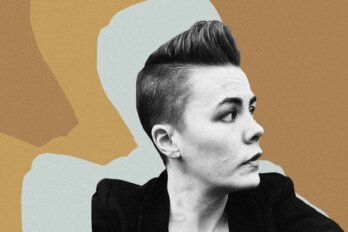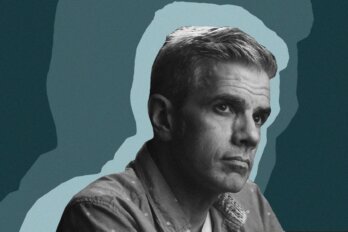My last name, in English, means “let us pray.” In Uganda, unlike in Canada, last names aren’t family names. They are not passed down from father to child, from generation to generation. Every child gets their own, one that reflects the circumstances surrounding their birth. One of my siblings, born during the Ugandan Bush War in the 1980s, was given Kentaro as her last name. Of the war. She ditched that as soon as she could after secondary school and chose for herself an airy surname that did not evoke violence and strife.
My last name was given to me before I was born. It was a prayer for me to be born healthy, for my mother to survive my birth. She’d been battling rheumatoid arthritis, an autoimmune disease that racked her with pain and disfigured her joints. It made her stoop and walk with a limp. She’d had the disease for years before it was diagnosed. The doctor who identified it suggested an abortion when my mother told him she was also pregnant. But Mum wouldn’t hear it. “We shall pray to God and see what happens,” she told the doctor.
I lived and so did Mum, until I was nearly seventeen. That was when doubt crept in, chipping away at my faith. At her funeral, as we sang songs of praise to God, calling Him a wonderful and merciful saviour, I thought, “It’s my mother’s funeral; why is everything about Him?” When well-intentioned mourners told me that God had called Mum to a better place, that she would watch over me forever from above, I wanted to scream at them for saying such hurtful nonsense. I found myself favouring my father’s view of the Christian God: that he was an import brought over by our British colonizers to make us subservient while they stole the land from beneath our feet.
We were sitting around a fire, keeping a night vigil as per our funeral customs, when my father told me a proverb: Enjojo teremwa omugobora gwayo. An elephant never fails to carry its own tusks. He put his hand on my shoulder and left it there a while before standing up and walking away. My father is fond of imparting wisdom this way, throwing an old saying at you and leaving you to mull over it. When we were younger, he’d quiz my siblings and me at supper. He’d say one half of a proverb, phrasing it like a question, and look to us to complete it.
“In all the world, all things are . . . ”
“ . . . two by two,” we’d reply, eager to impress.
“Slowly by slowly . . . ”
“ . . . the earthworm reached the well.”
“If wishes were horses . . . ”
“ . . . beggars would ride and go.”
“Grief is what?”
“A scar that never heals.”
When the customary week of mourning the dead ended, relatives and friends went back to their lives. My siblings also left: my oldest sister to medical school in Fort Portal and my youngest back to her boarding school in Ibanda. I had just completed O-Levels and was waiting to start my A-Levels—the last two years of secondary school—in a month or so. I came home after seeing my siblings off at the taxi park and was faced with an empty compound, quiet as a graveyard. A wave of grief overwhelmed me. It was as if I had just found out that my mum was truly dead, that her physical presence was forever lost to me. I tried to pray; it’s what I had always done whenever I felt overwhelmed. But I could not. Her death had effectively divided my life into a “Before” and “After.” Before, prayer was possible. After, it was hopeless and absurd. It felt silly, embarrassing even, to pray to an entity I was beginning to perceive as petty and vindictive, a celestial dictator.
But long after being disillusioned with God, I carried on going to church every Sunday. I was finding it difficult to detach completely. Following in my mother’s footsteps, I had believed in God since I was old enough to believe anything. What would I become minus that belief? In church, while others prayed, I wept into my hands. Losing my faith felt every bit like grief—that old scar that never heals.
A few months before my mother’s heart stopped beating, a cult leader in Kanungu, five hours southeast of my hometown of Kamwenge, locked his followers inside a church and burned it to the ground. My father, a news addict, told us that Joseph Kibwetere—one of the co-founders of the Movement for the Restoration of the Ten Commandments of God—nailed the doors and windows shut so no one could escape. Members of the sect had believed the world would end at the turn of the millennium. Credonia Mwerinde, the other co-founder of the doomsday cult, was among those who had prophesied about the apocalypse. But almost three months into the year 2000, Earth was still spinning on its axis. Nothing had changed. Police believed that cult members started asking questions, voicing their doubts and concerns. Kibwetere slaughtered cattle and bought many crates of Coca-Cola. He gave his followers a great big celebration. Later that night, someone—possibly Kibwetere, possibly other cult members—torched all 500 of them.
“Those poor people,” I said, wondering how they could have allowed themselves to be so brainwashed. Dad explained that “those poor people” had joined a movement. “No one joins a cult,” he said.
My father was worried Mum and I were getting too radical for Jesus. We were no longer protestants; we now attended the new Pentecostal church, a ramshackle rectangular structure built of mud, wattle, and a rusted tin roof. The pastor had taken us to Mpanga, the nearby river, and re-baptized us by immersion the way John the Baptist had baptized Jesus. He put one hand on my chest and the other at the back of my neck, and as he dunked me backward into the brown water, I pictured the heavens parting, the spirit of God descending upon me like a dove.
When American evangelists came to Kamwenge, Mum and I attended the gospel crusades. At one such gathering on the playground of my former primary school, I spoke in tongues. The American preacher was calling down the spirit of God in that particular Pentecostal way, shouting into the microphone, “Pray until something happens,” and I felt a bearing upward. I had been fasting for three days, praying for Mum to get well. My tongue pattered like rain on a tin roof. The feverish sound—what I accepted as the divine language of the Holy Spirit—reverberated through my body. When I came out of the trance, I was standing in the netball court a good distance away from the crowd. I had no idea how I got there.
Imoved to Regina, Saskatchewan, in my early twenties, and as if out of habit, one of the first things I did was to find a church. It was on Hillsdale Street, a short walking distance from my apartment near the University of Regina, where I had come to study journalism. I went to the church one Sunday morning and they were singing, “Lord, I give you my heart, I give you my soul . . . ”—a Hillsong Worship song I knew and loved.
My eyes welled up. I had found my tribe. I went back almost every Sunday after that. Everyone there was so kind and welcoming, eager to offer help when I needed it. But I wrestled with the pastor’s sermons. I had grown quite cynical about the unquestioning obedience required to enter the kingdom of God. More and more, I was finding that I didn’t desire His love and protection so much.
I remember that, one day, after service, the wife of a senior member of the church pulled me away from my boyfriend, whom I had brought to church with me. She said, “I didn’t know you were married.”
“I’m not,” I replied.
“But you two are living together?”
“We are,” I said, cowering in shame.
“You’re living in sin.” She tutted and shook her head in sad disapproval. “You are living in sin, Iryn.”
I happened upon another Sunday ritual by accident. While reading T. C. Boyle’s Greasy Lake and Other Stories as part of my first-year English course, I fell in love with short stories. They had never been on my radar; I’d always devoured novels. I went to the university library looking for more short stories—these little delightful universes I could immerse myself in and surface from before the next class. Soon I was spending more time in the library than with my friends from church. And Sunday morning was such a perfect time to be on the fifth floor of the Dr. John Archer Library; there was hardly anyone else there. Impatient, I’d sit right there on the floor in the aisle, surrounded by towering shelves full of anthologies and literary magazines. Stories became my refuge. I discovered people, real and imagined, and they convinced me there was no key to the mysteries of life, and that this was perfectly fine. The resulting feeling was one of euphoria, like when it was possible to talk to God in the “Before.”
I did not marry the man with whom I was living in sin, but we did have a baby together. Two, in fact. When I was giving birth to my first, as she bludgeoned me from within, I cried out to God: “Help me.”
My mother’s face filled the screen of my delirious mind. She mocked me. “Look at you being waited on by these white people. All this state-of-the-art equipment. For what? I gave birth to you under a pawpaw tree with only your father trying to help,” my mother said. “Quit crying, and let’s get this over with already.”
Afterward, when they laid my squirming baby on my chest, I said, “Thank you, Mum.” The doctor, probably not old enough to be my mother, replied, “You’re very welcome.”
“Let us pray” is one half of my daughter’s last name. I wanted her to have it. After all, I did pray while I laboured with her, and my mother answered.
Ihave discovered some other ways to pray. In the mid-afternoon zone when my brain grows loud with everything it has absorbed, I find a quiet spot in the house and sit. I set an alarm for fifteen to thirty minutes and then try to clear my head by thinking about nothing at all. But it’s terribly difficult to do this, so to keep my mind from wandering, I give it something to do. I count my exhalations from one to four and repeat.
One, two, three, four. One, two, three, four. One . . .
By around the fifteen-minute mark, the awareness of my breathing fills my consciousness, almost to the exclusion of everything else. When the alarm goes off, I feel like I’ve found something of myself I once had but lost without ever knowing what it was.
But sometimes sitting still with my eyes closed is a lesson in futility. Fifteen minutes stretch into a spacious eternity. Did my alarm stop working? Should I open my eyes and take a quick look? Everything is loud: the furnace kicking in, the snowplow beyond the window, the walls creaking with winter chill. Why do I force myself to endure this boredom?
. . . twenty, twenty-one, twenty-two.
Oh shit!
I begin again.
One, two, three, four. One, two . . .
Once, after I’d been sitting for what felt like forever, I felt a bearing upward, like I had on that day many years ago when I spoke in tongues. I was floating above the bed, weightless, looking down at my empty shell. I panicked, but only for a moment. I sucked in air, counted as I exhaled, and I returned to myself.





